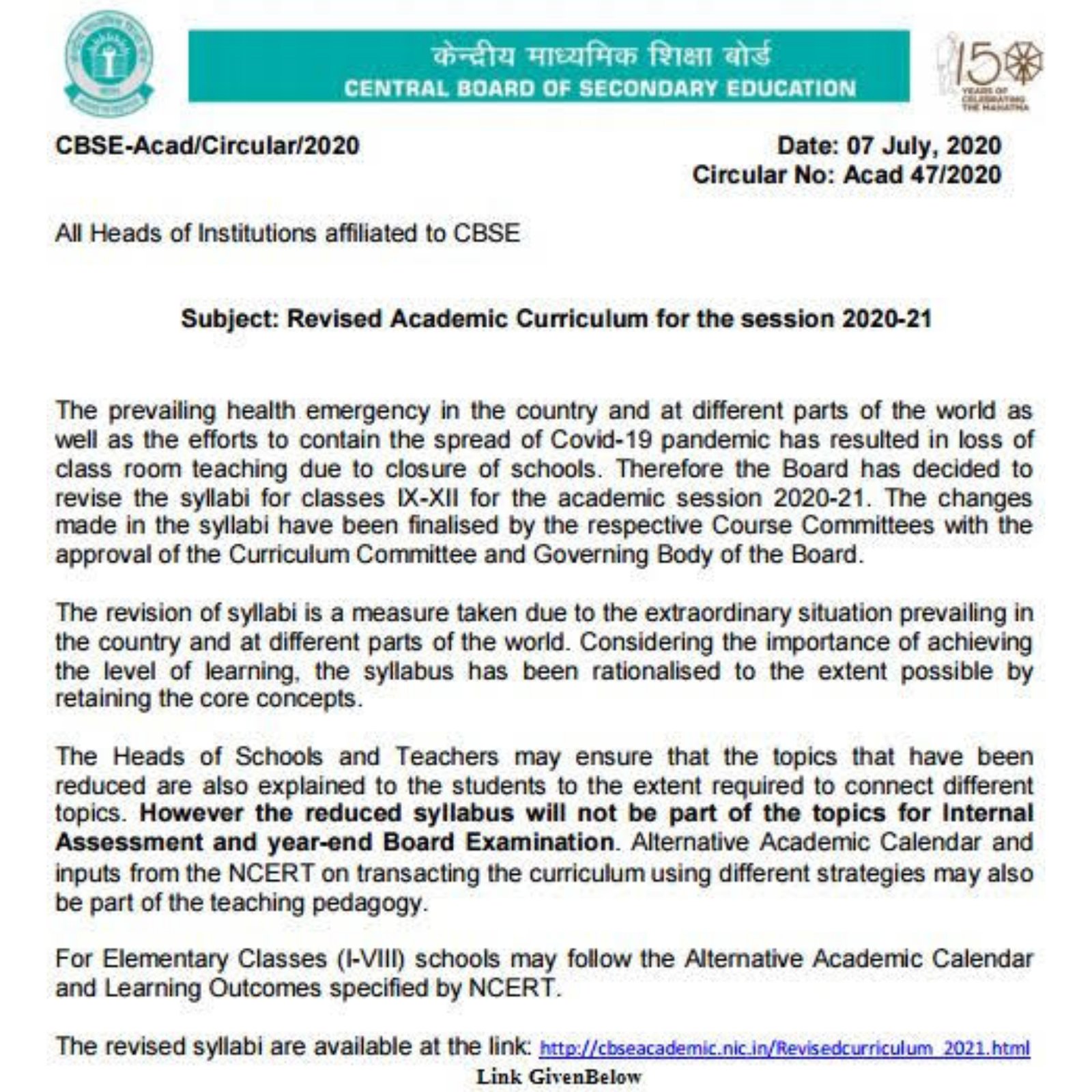With the surge in cases of the Coronavirus, students are unsure of what lies ahead. The ambiguity of their academic future has certainly raised a lot of questions.
However, on July 7, 2020, the CBSE made a startling announcement declaring that 30% of the total syllabus of classes 9th-12th will be cut-off for this academic year, with the claimed rationale being an effort to decrease the stress on students amidst the ongoing pandemic. The decision was made after recommendations from Human Resource Development Minister Ramesh Pokhriyal ‘Nishank’ and Deputy Chief Minister Of Delhi Manish Sisodia.
They further clarified that the omitted chapters might be explained to students to connect the dots between different topics, and would be covered under the Alternative Academic Calendar of the NCERT.

At first glance, this report sounds reasonable, relieving even.
But upon delving further into the list of topics that are being scrapped off, one can’t help but question their selection procedure. What has particularly garnered attention in the Twitter universe is the deletion of core concepts in Political Science which form a part of the Basic Structure if our Constitution.
Many are protesting the move calling it unconstitutional. Some argue that this may very well be the government’s method to curb awareness of our rights.
As Manish Sisodia puts it, “The secondary school curriculum classes IX-X 2020-21 and senior secondary school curriculum classes XI-XII 2020-21 does not explain the process by which the course committee, curriculum committee or the Governing Body of CBSE arrived at the decision to remove or include any particular topic/chapter.”
To fully understand why the decision is being questioned, it is important to analyze the impact they would hold.
As any student of Polity, rather, anyone with basic knowledge on the Constitution of India would tell you, the core values of our nation lie in concepts like Secularism, Federalism, and Democracy
Assuming that we proceed with the deletion of these chapters, how does one accord attention to the immediacy involved in taking action regarding negative aspects of our country? How will someone understand the vitality of speaking up when they do not emphasize on the core, the absolute heart of our foundation?
Being from a country that praises itself for its diversity, how does one ensure that the rights of our community are not being quashed in the name of convenience? It is one thing to label oneself, and another to actually keep checks on the implementation of these principles.
Upon elision of such ideals, it gets very difficult to wholly understand the rights and values intrinsic to our nationhood. As future citizens with the power to exercise their right to vote and question the ruling government, it is imperative that these students conceptualize truly what they stand for.
One does not have to be a student pursuing the subject to agree with the premise that without the instruction manual, it is profoundly difficult to wield the tools.
In a realistic scenario, teachers would not spend much time glossing over chapters that prove futile in relation to examinations. Due to the unexpected delay in the onset of this academic year, it would be difficult as it is to explain these ‘additional’ concepts, considering the time crunch. Adding to that is the relative difficulty associated with online classes, making any attempts to study subject matter other than what is necessary, unlikely.
Since the subject is a popular choice of students particularly in the Humanities stream, it holds the key to their future prospects. For anybody aspiring to have a know-how of the Constitution, acknowledgement of these principles is a prerequisite.
While we do seek to know the basis of the impugned decision, the step to cut down the syllabus is undeniably a welcome one. It will hopefully serve to ease the burden on students and teachers during these trying times. But the least we can expect is to become a part of the decision making process. India is the world’s largest democracy after all.
Merely decreasing the syllabus is futile if one doesn’t recognize the essence of its framework. As politically aware citizens, it is vital for us to question these measures whenever necessary, which is incidentally a fundamental step in the functioning of a Democracy.
This post was written by Manya, Ist year.